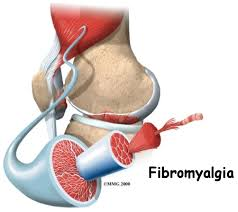The nurse is teaching a client about preventing osteoporosis. Which statement made by the client indicates a need for further teaching? "I will:
Decrease my intake of vitamin K-rich foods."
Reduce my intake of sodium.
Avoid drinking carbonated soda.
Limit caffeinated beverages.
The Correct Answer is A
Choice a reason:
Decreasing intake of vitamin K-rich foods is not recommended for the prevention of osteoporosis. Vitamin K is essential for bone health because it helps in the synthesis of proteins required for bone formation and mineralization. A deficiency in vitamin K can lead to weakened bone structure and increased risk of fractures. Foods rich in vitamin K include green leafy vegetables like spinach, kale, and broccoli, which should be a part of a balanced diet aimed at preventing osteoporosis.
Choice b reason:
Reducing sodium intake can be beneficial for bone health. Excessive sodium consumption can cause calcium loss through urine, which may contribute to bone demineralization and increase the risk of osteoporosis. The American Heart Association recommends no more than 2,300 milligrams a day and moving toward an ideal limit of no more than 1,500 mg per day for most adults.
Choice c reason:
Avoiding carbonated soda, especially those containing phosphoric acid, is advisable for osteoporosis prevention. Some studies suggest that phosphoric acid in soda can leach calcium from bones and decrease calcium absorption, potentially weakening bones and increasing the risk of osteoporosis.
Choice d reason:
Limiting caffeinated beverages is a prudent step in preventing osteoporosis. Caffeine can interfere with calcium absorption and lead to its increased excretion in urine. It is generally recommended to limit caffeine intake to about 400 mg per day, equivalent to around four 8-ounce cups of brewed coffee.
Nursing Test Bank
Naxlex Comprehensive Predictor Exams
Related Questions
Correct Answer is B
Explanation
Choice a reason:
Diuretic use is not typically associated with an increased risk of developing fibromyalgia. Diuretics are commonly used to treat conditions like hypertension and edema by helping the body eliminate excess fluid, but they do not contribute to the onset of fibromyalgia¹.
Choice b reason:
Emotional or physical trauma has been identified as a risk factor for fibromyalgia. Individuals who experience significant stress or traumatic events may develop the disorder due to changes in how their central nervous system processes pain. Stress can lead to long-lasting effects on the body and may trigger fibromyalgia or worsen its symptoms²³⁴.
Choice c reason:
Being overweight is not a direct risk factor for fibromyalgia, but it can exacerbate symptoms in those who have the condition. Excess weight can increase the strain on the body and may contribute to the chronic pain and fatigue associated with fibromyalgia. However, it is not considered a causative factor¹.
Choice d reason:
Being an adolescent male is not a recognized risk factor for fibromyalgia. The disorder is more commonly diagnosed in women, and while it can occur at any age, it is most often diagnosed during middle age. Gender and age alone are not sufficient to determine the risk of developing fibromyalgia.

Correct Answer is D
Explanation
Choice A Reason
While maintaining a stable blood pressure is important for a client with hypertension, furosemide is primarily a diuretic, and its therapeutic effect is to reduce fluid overload, not directly to stabilize blood pressure. Therefore, this finding alone does not best indicate the therapeutic effect of furosemide.
Choice B Reason
Clear lungs upon auscultation suggest an improvement in pulmonary edema, which can be associated with fluid overload in conditions such as heart failure. However, for a client with peripheral edema, the primary therapeutic goal of furosemide is to reduce the excess fluid in the extremities, not just the lungs.
Choice C Reason
A decrease in serum potassium is a known side effect of furosemide due to its action on the kidneys, leading to increased excretion of potassium. While it's important to monitor for hypokalemia, a decrease in potassium does not directly indicate the therapeutic effect of reducing edema.
Choice D Reason
An increase in urine output from 30 mL per hour to 100 mL per hour is a direct indication that furosemide is achieving its therapeutic effect. Furosemide is a loop diuretic that increases urine production to help the body eliminate excess fluid, thereby reducing edema associated with conditions like hypertension.
Whether you are a student looking to ace your exams or a practicing nurse seeking to enhance your expertise , our nursing education contents will empower you with the confidence and competence to make a difference in the lives of patients and become a respected leader in the healthcare field.
Visit Naxlex, invest in your future and unlock endless possibilities with our unparalleled nursing education contents today
Report Wrong Answer on the Current Question
Do you disagree with the answer? If yes, what is your expected answer? Explain.
Kindly be descriptive with the issue you are facing.
